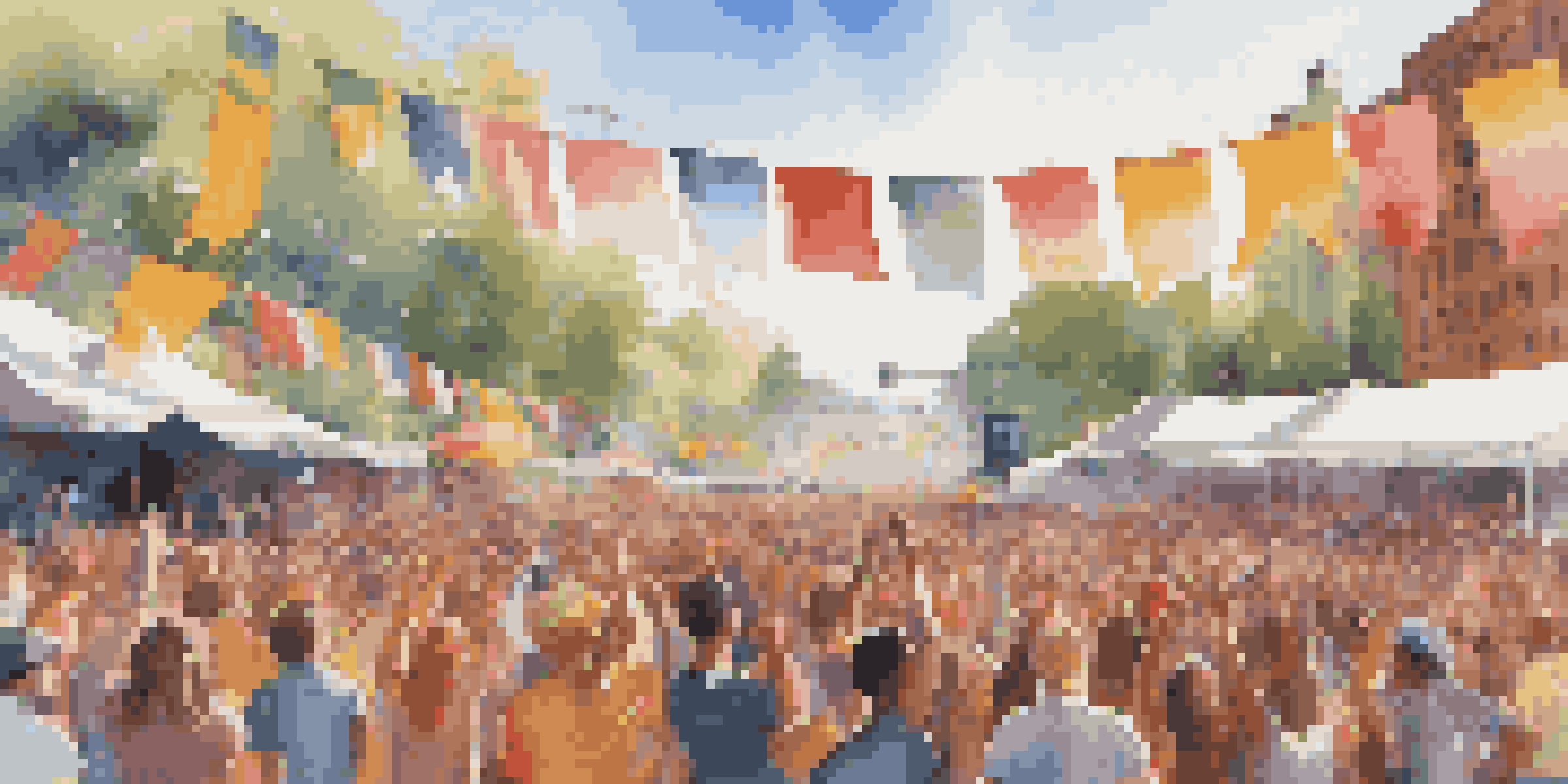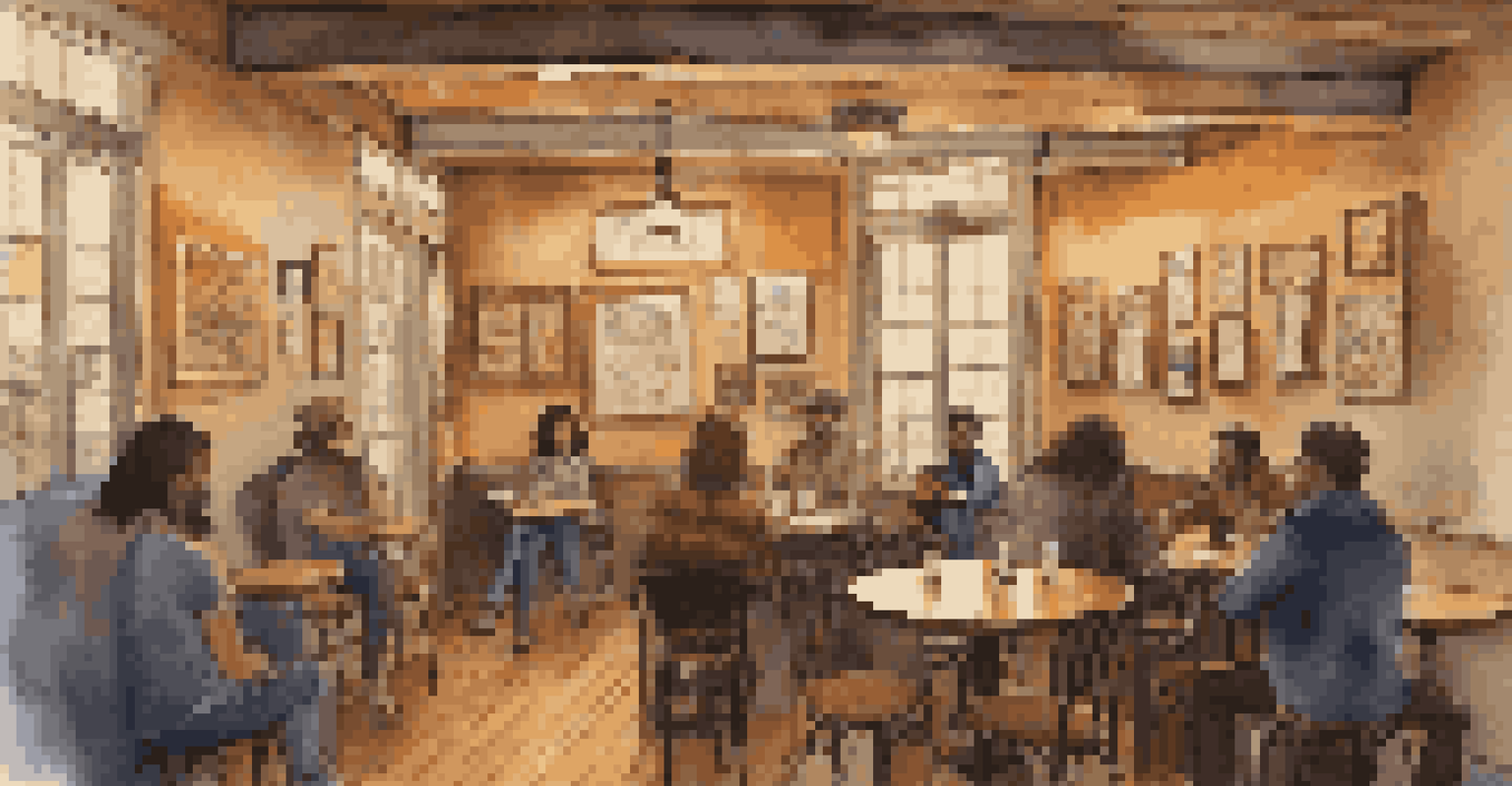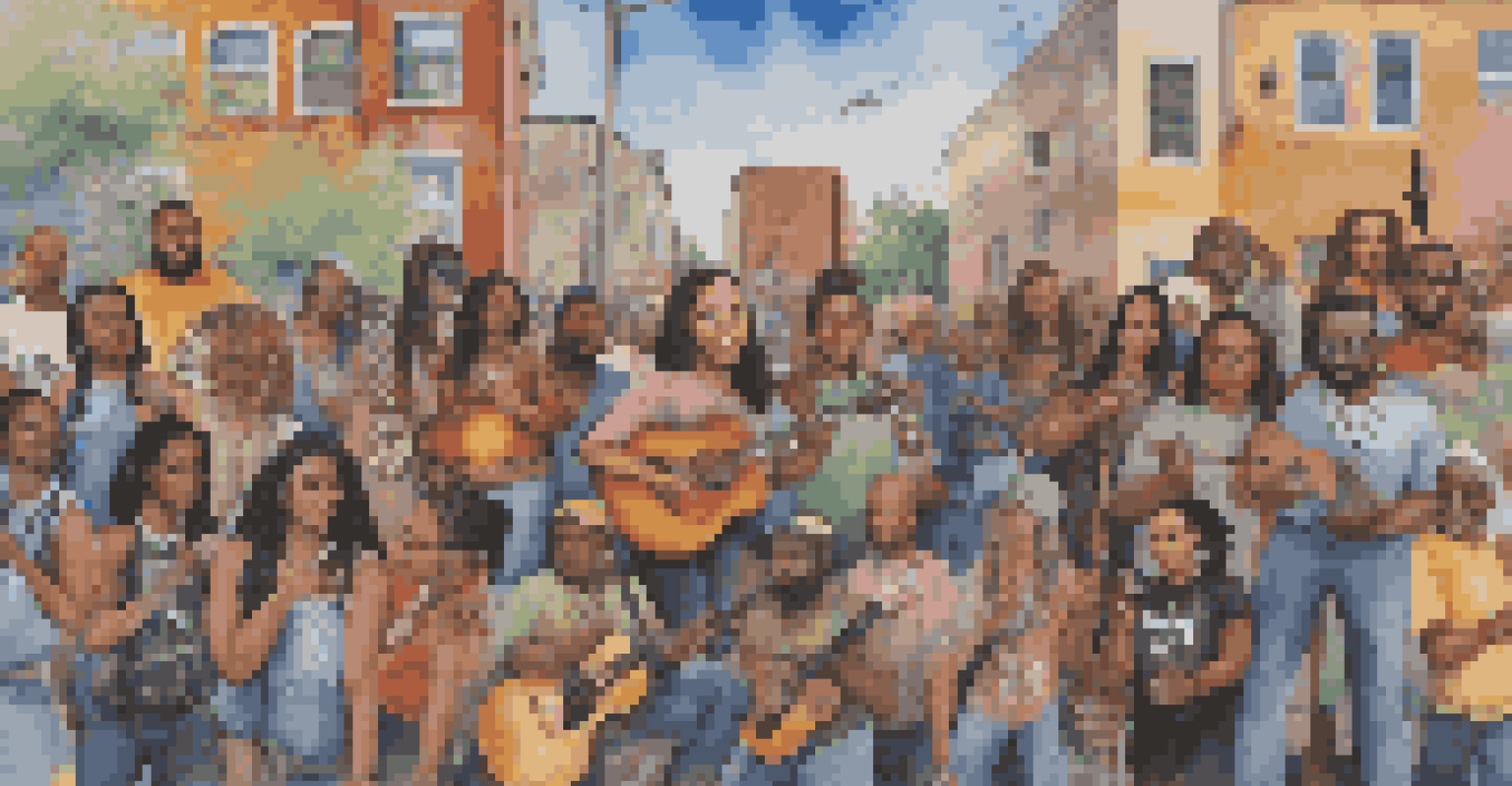Music as a Catalyst for Social Change and Activism

The Historical Role of Music in Social Movements
Throughout history, music has played a pivotal role in social movements, often serving as a rallying cry for change. From the spirituals sung by enslaved people in the United States to the anthems of the civil rights movement, songs have the power to unite and inspire. For instance, 'We Shall Overcome' became synonymous with the fight for civil rights, carrying a message of hope and resilience.
Music is the soundtrack of your life.
Music not only reflects the cultural sentiments of a time but also acts as a vehicle for expressing dissent and demanding justice. During the anti-war protests of the 1960s, artists like Bob Dylan and Joan Baez used their platforms to voice opposition to the Vietnam War. Their lyrics resonated deeply with those who felt disenfranchised, illustrating how music can articulate shared frustrations and aspirations.
As we look back, it's clear that music has often been at the forefront of societal change. Whether in the form of protest songs, national anthems, or underground tracks, its influence is undeniable. The emotional power of music continues to motivate individuals and communities to act for the greater good.
Modern Music Genres and Their Activism Impact
Today, various music genres serve as platforms for activism, each bringing unique perspectives to social issues. Hip-hop, for instance, has emerged as a powerful voice for marginalized communities, addressing topics like police brutality and systemic racism. Artists such as Kendrick Lamar and J. Cole use their lyrics to provoke thought and inspire change within their listeners.

Pop music also plays a significant role in activism, with many mainstream artists leveraging their influence to raise awareness. Taylor Swift, for example, has used her platform to advocate for LGBTQ+ rights and voter registration. The catchy hooks and widespread appeal of pop songs can make critical messages accessible to a broader audience.
Music Unites for Social Change
Throughout history, music has served as a rallying cry for social movements, inspiring unity and action among diverse communities.
Moreover, genres like punk and reggae have deep-rooted ties to social commentary and rebellion. Bands like The Clash and artists like Bob Marley used their music to challenge societal norms and injustices. This illustrates that no matter the genre, music remains a vital tool for sparking conversations and mobilizing action.
The Emotional Connection: Music and Human Experience
Music has a unique ability to evoke emotions and create connections among people. This emotional tether can drive individuals to take action when they relate to the struggles depicted in a song. For example, the heart-wrenching ballads about loss or injustice often resonate deeply, encouraging listeners to support causes that matter to them.
The power of music makes all the difference in the world.
When a song captures the spirit of a movement, it can become an anthem that unites people across different backgrounds. The infectious energy of songs like 'Fight Song' by Rachel Platten can inspire individuals to rally together, reinforcing a sense of solidarity and purpose. This emotional impact is what makes music such a powerful catalyst for social change.
In essence, music can translate complex feelings into relatable experiences. It serves as a reminder that we are not alone in our struggles, fostering empathy and understanding. As listeners connect with these messages, they may feel compelled to join the fight for justice and equality.
Global Movements: Music Beyond Borders
Music transcends borders, making it a universal language for social change. Global movements often utilize songs to communicate their messages, uniting diverse groups under a common cause. For example, the 'One Love' movement, inspired by Bob Marley, promotes peace and unity across cultures, showcasing how music can bridge gaps.
Artists from various regions collaborate to bring attention to global issues, such as climate change and human rights. The viral sensation of 'Despacito' not only topped charts but also highlighted the cultural richness of Latin music, demonstrating its potential to engage audiences worldwide. Such collaborations amplify messages and create a sense of global community.
Genres Amplify Activism Messages
Modern music genres like hip-hop and pop leverage their platforms to address pressing social issues and provoke thought among listeners.
In today's digital age, music can spread rapidly, allowing activists to reach audiences far and wide. Platforms like YouTube and Spotify enable songs with social messages to gain traction quickly, making it easier for movements to gain momentum. This interconnectedness illustrates the power of music to inspire change on a global scale.
The Role of Music Festivals in Activism
Music festivals have evolved into significant platforms for activism, merging entertainment with advocacy. Events like Coachella and Glastonbury often feature artists who use their performances to promote social causes. By integrating messages of change into their sets, these artists amplify the impact of their music.
Additionally, many festivals now include workshops and panels that address pressing social issues, providing attendees with opportunities to learn and engage. For instance, the annual 'Lollapalooza' festival has included discussions on climate change and mental health, encouraging participants to take actionable steps in their communities. This combination of music and education creates a powerful environment for change.
Moreover, festivals often raise funds for various charities, furthering their impact beyond just entertainment. When festival-goers contribute to these causes, they become part of a larger movement, reinforcing the idea that music can lead to tangible social change. This synergy between music and activism creates a vibrant community dedicated to progress.
Social Media: Amplifying Music-Driven Activism
In the age of social media, music-driven activism can reach unprecedented audiences. Platforms like Instagram, Twitter, and TikTok allow artists to share their messages instantly, engaging fans in meaningful discussions. For instance, the viral spread of songs like 'This Is America' by Childish Gambino sparked conversations about gun violence and racism, showcasing the power of social media in amplifying music's impact.
Social media also enables fans to participate in activism by sharing their favorite songs or creating content that supports a cause. Hashtags like #BlackLivesMatter have been paired with music to mobilize supporters and raise awareness. This interactive element encourages a sense of community and empowers individuals to use their voices.
Festivals Foster Community Action
Music festivals combine entertainment with activism, providing spaces for education and fundraising that promote social causes.
Furthermore, musicians can directly engage with their audience on these platforms, fostering deeper connections. By sharing personal stories and insights related to their music, artists can inspire followers to join the fight for social change. This two-way communication reinforces the idea that music and activism are intertwined in today's digital landscape.
The Future of Music as a Tool for Change
As we look to the future, music will undoubtedly continue to be a powerful tool for social change. Emerging artists are increasingly aware of their platforms and the responsibility they hold in shaping narratives. With the rise of new genres and sounds, fresh perspectives on social issues will emerge, keeping the conversation alive.
Technology will also play a significant role in how music drives activism. Virtual concerts and online collaborations can reach wider audiences, ensuring that messages of change resonate globally. As more artists utilize digital platforms, the potential for music to inspire action will only grow.

Ultimately, the combination of creativity and activism will pave the way for a more just and equitable society. As long as there are voices willing to speak out through music, we can expect to see continued progress and change. The journey of music as a catalyst for social change is far from over; in fact, it’s just getting started.